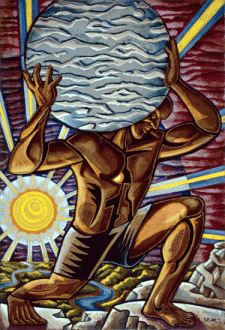
In this term we will explore the theme of the source of our values and the meaning of our existence. It is often said that our modern world has moved from a religious to a secular age and we will be exploring whether or not we have really come to terms what such a transformation might mean, if indeed it has really happened.
Some of the questions we will be asking include: are there any rational justifications for religious belief? How should we think about the relationship between faith and reason anyway? If we come to reject the idea that a supreme being can act as the foundation of our values, what are the implications of this? Does the absence of the divine mean that our lives are pointless or without real meaning? Or does this mean that we have to create such meanings for ourselves? What might the implications of this be for our sense of morality, freedom and the idea of an objective truth?
In the course of exploring these questions, we will look at the work of ‘religious’ thinkers such as Anselm, Aquinas, Descartes, Pascal, Montaigne, Kant and, in a very different way, Kierkegaard. We will read and discuss faith and religious inner experience in the Jewish, Christian and Islamic tradition, and explore the gap between reason and faith in Maimonides, Julian of Norwich and Margery Kemp, Spinoza, Ibn Rush and Al-Ghazali. We will then move onto the contributions of atheist and existentialist philosophers, beginning with Kierkegaard and Nietzsche, as well as discussing existentialism in literature and art, focusing on Kafka and Dostoevsky. We’ll then turn to 20th century thinkers like Albert Camus, Jean-Paul Sartre, Simone de Beauvoir and rounding up with Hannah Arendt, addressing how ethics and philosophy can continue to remain pivotal in a world without God or traditional fixed certainties.